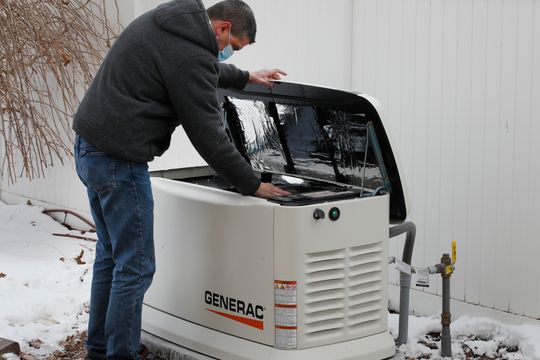Analyst turns bearish as home-generator maker’s ‘ambitious’ 2023 guidance seems ‘increasingly out of reach’
Shares of Generac Holdings Inc. took a hit Friday after BofA Securities analyst Julien Dumoulin-Smith effectively threw in the towel on the portable- and home-generator maker, saying hopes that the worst was in the past have faded as pressures mount in its residential business.
The stock GNRC, -3.54% fell 2.4% in midday trading, enough to put it among the S&P 500’s SPX, +1.44% worst performers.
Generac shares were still up 8.6% year to date but have dropped 19.2% from their 2023 peak close of $135.23 on Feb. 15. In 2022, they plunged 71.4%.
Dumoulin-Smith cut his rating on Generac to underperform from neutral and slashed his stock-price target to $91 from $141. The new price target implies about 17% downside from current levels. Dumoulin-Smith is now just the second analyst of the 27 surveyed by FactSet who is bearish on Generac.
“After [Generac’s] precipitous fall from grace as the second worst performing stock in S&P in 2022, we argued shares had largely flushed out into 2023,” Dumoulin-Smith wrote in a note to clients. “However, [Generac’s] ambitious [fiscal year 2023] guidance seems increasingly out of reach to us, as pressures mount in the residential segment.”
The company had said in mid-February, in its fourth-quarter report, that it expected 2023 sales to be down 6% to down 10% from 2022 sales of $4.56 billion. The current FactSet consensus for 2023 sales of $4.1 billion implies a 10% decline.
Dumoulin-Smith’s estimate for 2023 sales is much lower than those of his peers. He expects sales to fall about 25%, to $3.43 billion.
He said it’s difficult to accept management’s insistence that the channel congestion of home-standby-generator (HSB) inventory will be alleviated in the second half of 2023, when the latest winter storms didn’t accelerate inventory drawdowns. And management has stated that demand is most closely driven by outages and storm activity.
“[O]ur latest discussions with [management] provide more caution than comfort, and we highlight emerging negative risks,” Dumoulin-Smith wrote. “Into a deteriorating macro environment with a strained [residential] consumer, we highlight risk to further HSB underperformance on volumes and pricing,” he added.

